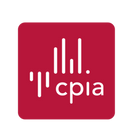Evaluating Impact
Overview
Did this policy or program help those it was intended to help? Did it deliver on its promises? The Evaluating Impact course provides participants with a foundation in evaluation, data, and analytics to answer these questions.
The course will prepare participants to help lead the design and implementation of evaluations assessing the impact of projects, programs, and policies. Participants will gain knowledge of evaluation design, data collection, and analysis, including the benefits and costs of different approaches, common problems with analysis and evaluation design (and how to avoid them), and guidelines for how to choose a best-fit evaluation design for a given project given real world constraints.
We will then explore how evaluation, data and analysis can improve accountability and inform decisions, including project design and funding allocation. This includes a review of evaluation-based cost-benefit analysis, and results-driven funding mechanisms including impact investing, blended finance, payment-for-results agreements, and impact bonds.
Overall, participants will be able to assess what worked and what didn’t. The course will prepare you to refocus on priorities and resources and make necessary changes to ineffective programs.
Why should I Join?
This course will help you gain new skills to assess, measure, learn, and apply for the success of the programs.
Even though this is an economics and analytics course, Queen’s University professors Christopher Cotton and Bahman Kashi designed the course to focus on building intuition through narratives.
By the end of the course, participants will gain knowledge in measuring, learning, and evaluating impact. This course will prepare you to develop better evidence of project or program effectiveness - which means whether the programs and policies you implement are actually delivering on their promised results. And how to make sure that limited funding gets directed to the use where it makes the most significant difference.
What do I learn?
By the end of the course you will be able to
- Set up “best-fit” monitoring, evaluation & learning frameworks
- Use project monitoring to track and manage performance
- Design evaluations using RCTs and other experimental & quasi-experimental methods to assess impact
- Combine rigorous qualitative and quantitative methods
- Develop surveys and assessment instruments
- Use advanced data collection and analysis techniques
- Identify learning opportunities to improve future impact
- Consider impact performance systems for organizations
- Define the role of pay-for-results and blended finance, and impact investing
- Use evidence to identify efficient indicators for innovative finance
Course Format and Engagement
Participants will be able to engage in a digital learning environment along with self-paced modules during the period from Jan-April 2023. The combined delivery method benefits from pre-recorded content and weekly live sessions. The self-paced pre-recorded weekly activities include a re-cap quiz. The weekly live sessions will focus on course questions and answers, as well as practical discussion activities. Weekly live sessions provide a great opportunity to discuss questions and concerns with the professors. The course is structured to give participants an inclusive and interactive environment to learn, question, engage and apply impact analysis.
Course Material and Evaluation
You will be evaluated based on participation, weekly quizzes, performance in discussion activities, and the submission of the final assignment at the end of the program. You will be awarded a certificate at the end of the course.
After finishing this course, you are qualified to take the Impact Analysis Capstone course. Upon completion of these three courses, you qualify to take the CPIA-I Exam to get your CPIA-I certification.

